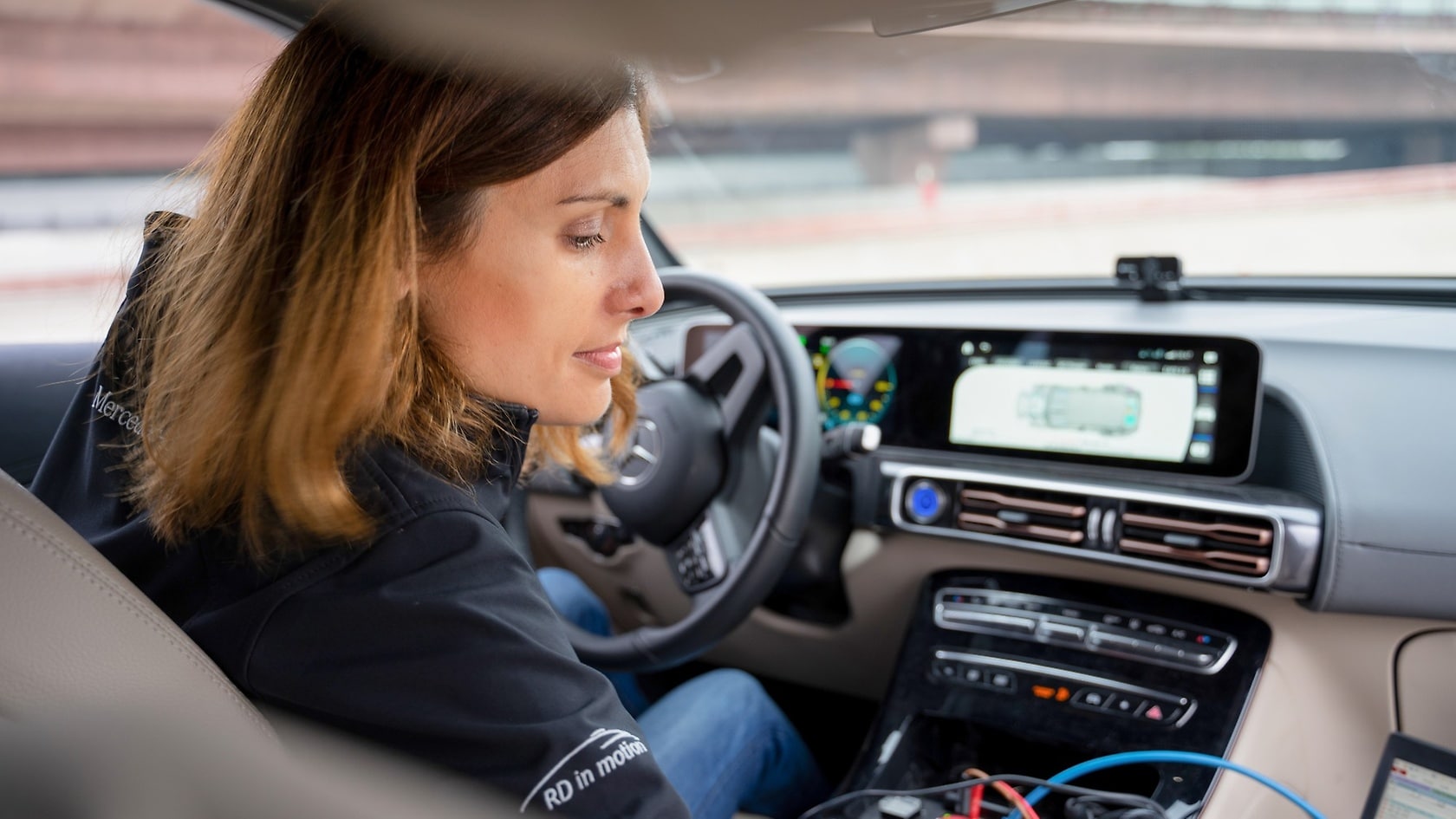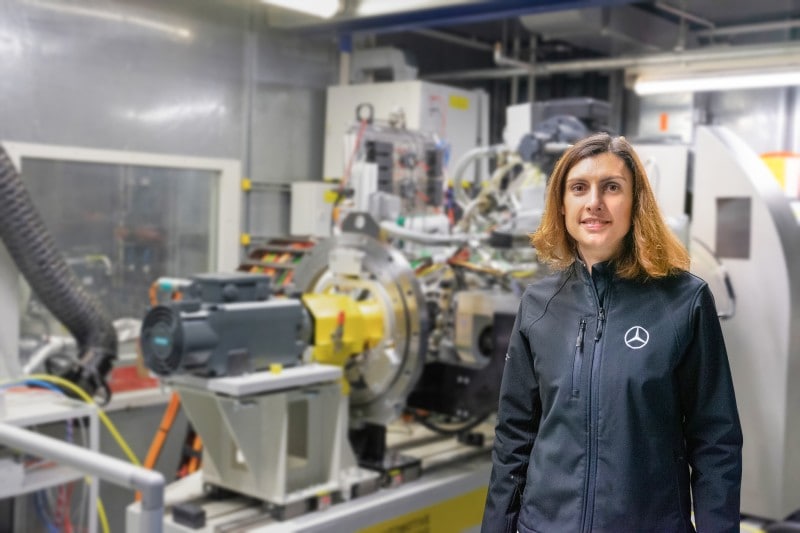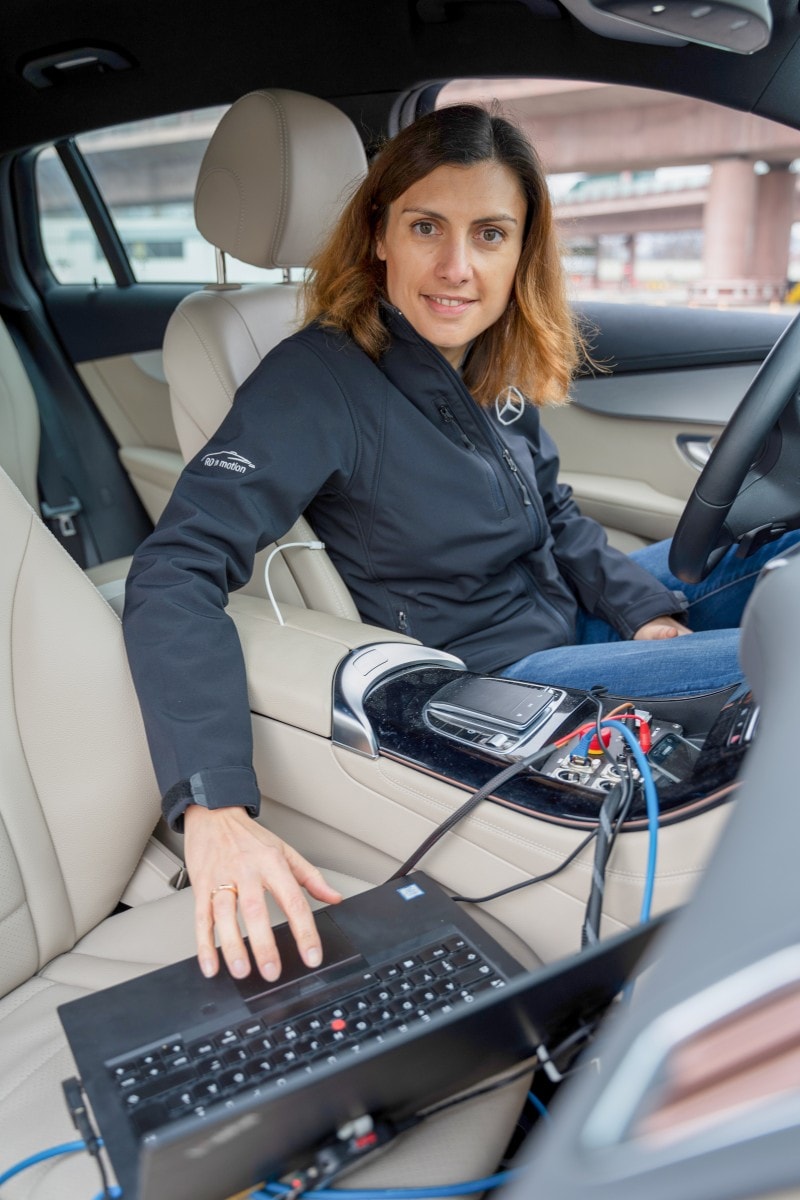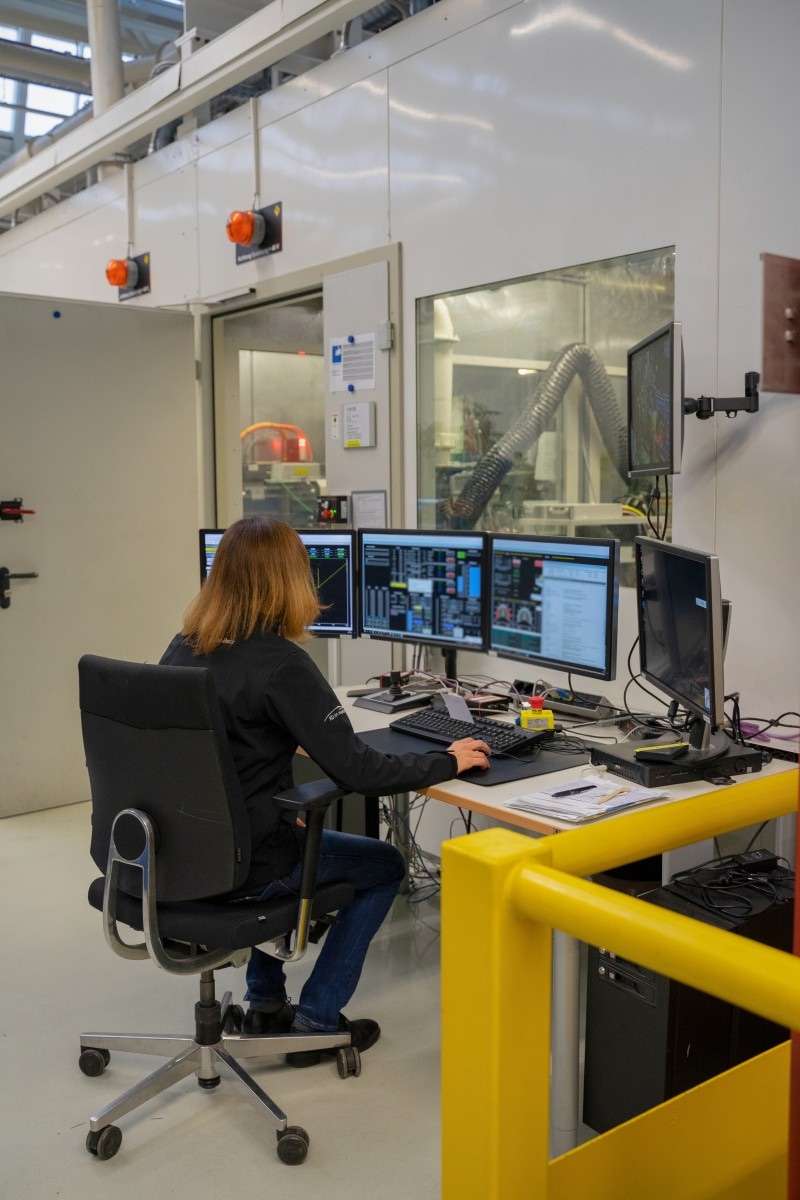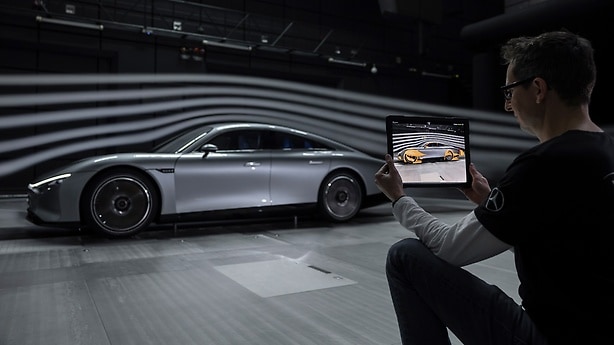As head of the department, you contributed to the decision for the new electric drives and later helped build up the development department yourself. What does your team look like?
In the Electric Power Train department, I am responsible for five teams with a total of 50 employees - all top engineers. The team usually sits in an open-plan office, which allows us to work together very flexibly during the development. However, our colleagues are often out on the road for tests, testing our drives in action on the test stand or in the vehicle. Another important aspect is the close exchange with our colleagues in Sindelfingen, who develop the vehicles, and with the plants that produce the drives. In this way, we ensure that the different requirements are always taken into account.
These sound like exciting tasks. What makes Mercedes-Benz special for you as an employer?
We all share the same passion for technology here and the ambition to create something outstanding. I appreciate the many opportunities for development and the wide variety of tasks. Here, I had the chance to shape my own career path from the very beginning - starting when I joined as a trainee Later, I also had the opportunity to gain experience in hybrid development in the U.S...
... and then from 2011 to 2013 you were assistant to the management at Mercedes-AMG.
Yes. That was a really exciting time. At the time, Ola Källenius was in charge of the Mercedes high-performance division. I learned a lot about strategy, management and leadership. I still benefit from this as a manager today.
What is important to you in your work as a leader?
I attach great importance to team members knowing what contribution they are making. For me, that has something to do with appreciation. An open exchange is very important here. I start each day over "Morning Coffee" with my team leaders - we sit down, share ideas and discuss what's coming up. This includes taking the time to celebrate a success when we have achieved a goal together.
You have been involved with drive technology for almost your entire career. How did it actually come about?
That's right. What's interesting here is that I originally come from a completely different field. In my studies, I specialized in electronic power supply. Many of my fellow students now work for energy companies or municipal utilities. In 2003, I was given the opportunity to write my final thesis on the subject of fuel cells here at the company. That was my first contact with the automotive industry and I quickly became enthusiastic about the tasks the company offers for engineers. Mercedes-Benz was my "best fit" as employer from the very beginning. This is still the case today.
